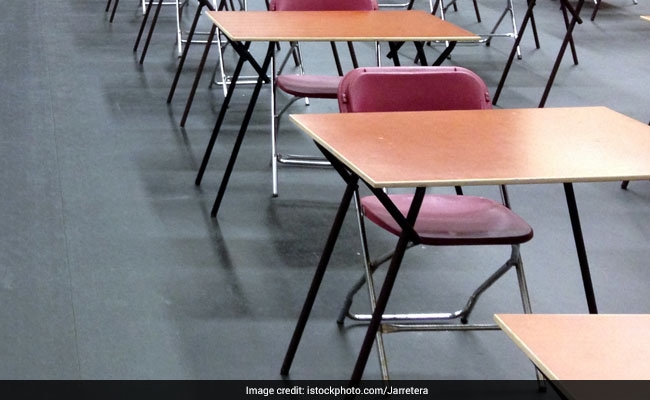
CBSE Class 10, 12 board exams, no moderation policy, State Boards Asked To Stop Mark Inflation
New Delhi:
In order to ensure a transparent marking scheme and quality assessment of answer copies, Central Board of Secondary Education (CBSE) had decided to forego marks moderation, last year. State Boards had also been asked to stop mark spiking. The decision, apparently, has been taken so that marks scored by a student in board exams are a true reflection of the student's performance. Today, Anil Swarup, the Secretary to MHRD, Government of India tweeted about the 'farce relating to irrational spiking of marks'.
On 6 October 2017, Anil Swarup, the Secretary to MHRD, Government of India, tweeted that states and boards have been issued advisory to check spiking of marks. The advisory by MHRD about spiking of marks comes in a timely fashion so as to avoid any contentions this year. Refrain From Spiking Of Marks: Centre Issues Advisory To States, Boards
With a view to check the number of students who scored more than 95% marks in their board exams, often leading to sky-high cut off marks during under graduate college admissions, CBSE came up with the decision to scrap mark inflation.
To this decision, the CBSE further added that a unilateral scrapping of the policy would put CBSE students at a disadvantage during UG college admissions, hence it was very important that all state boards also agree to it.
CBSE and 32 other boards had developed a consensus on scrapping of the moderation policy in a meeting on April 24. States like Kerala, Tamil Nadu, Andhra Pradesh and Chhattisgarh, have decided to implement the policy change from this year.
CBSE had to carry on with marks moderation policy last year, as directed by the Delhi High Court, which said that the Board could not do away with policy since it was still in place when the students had filled the exam forms. CBSE Scraps Moderation Policy: Here's What Students Should Know
The CBSE had in 1992 adopted the practice of awarding grace marks of up to 15 per cent in certain papers if the questions are deemed to be difficult.
The CBSE had in December last requested the HRD Ministry to help develop a consensus among all state boards on scrapping the marks moderation policy which is considered as the reason behind very high scores in board exam results.
(With Inputs From Agencies)
Click here for more Education News
High time this farce relating to irrational 'spiking' of marks is stopped. Glad that there is a consensus amongst the states to stop this practice. https://t.co/s9OxSP0QuB
— Anil Swarup (@swarup58) December 27, 2017
On 6 October 2017, Anil Swarup, the Secretary to MHRD, Government of India, tweeted that states and boards have been issued advisory to check spiking of marks. The advisory by MHRD about spiking of marks comes in a timely fashion so as to avoid any contentions this year. Refrain From Spiking Of Marks: Centre Issues Advisory To States, Boards
To ensure that marks are true reflection of performance in the exams, advisory issued to States & Boards to refrain from spiking of marks.
— Anil Swarup (@swarup58) October 6, 2017
With a view to check the number of students who scored more than 95% marks in their board exams, often leading to sky-high cut off marks during under graduate college admissions, CBSE came up with the decision to scrap mark inflation.
To this decision, the CBSE further added that a unilateral scrapping of the policy would put CBSE students at a disadvantage during UG college admissions, hence it was very important that all state boards also agree to it.
CBSE and 32 other boards had developed a consensus on scrapping of the moderation policy in a meeting on April 24. States like Kerala, Tamil Nadu, Andhra Pradesh and Chhattisgarh, have decided to implement the policy change from this year.
All Education Boards & not merely CBSE arrived at a consensus not to resort to "spiking" of marks under the garb of "moderation".
— Anil Swarup (@swarup58) April 26, 2017
CBSE had to carry on with marks moderation policy last year, as directed by the Delhi High Court, which said that the Board could not do away with policy since it was still in place when the students had filled the exam forms. CBSE Scraps Moderation Policy: Here's What Students Should Know
The CBSE had in 1992 adopted the practice of awarding grace marks of up to 15 per cent in certain papers if the questions are deemed to be difficult.
The CBSE had in December last requested the HRD Ministry to help develop a consensus among all state boards on scrapping the marks moderation policy which is considered as the reason behind very high scores in board exam results.
(With Inputs From Agencies)
Click here for more Education News

